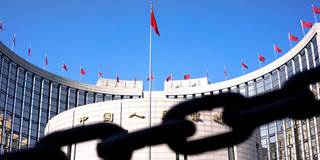This month marks the 20th anniversary of the Asian financial crisis. While such milestones are not exactly cause for celebration, they at least afford an opportunity to look back and examine what has changed – and, no less important, what hasn’t.
AIX EN PROVENCE – This month marks the 20th anniversary of the Asian financial crisis – or, more precisely, of the event that triggered the crisis: the devaluation of Thailand’s baht. While such anniversaries are not exactly cause for celebration, they at least afford an opportunity to look back and examine what has changed – and, no less important, what hasn’t.
The causes of the crisis were contested at the time, and they remain contested to this day. Western observers placed the blame on Asian countries’ lack of transparency and on overly close relations between firms and governments – what they described as “crony capitalism.” Asian commentators, for their part, blamed hedge funds for destabilizing regional financial markets and the International Monetary Fund for prescribing a course of treatment that nearly killed the patient.
There is some validity to both viewpoints. The Bank of Thailand’s published balance sheet wildly exaggerated its available foreign-exchange reserves – hardly a shining example of financial transparency. Foreign speculators actively bet against the baht, and the short sellers included not just hedge funds but also investment banks, including one that was simultaneously advising the Thai government on how to defend its currency. And when counseling Asian countries on how to manage the crisis, the IMF erred – not for the last time, it should be noted – in the direction of too much fiscal austerity.

AIX EN PROVENCE – This month marks the 20th anniversary of the Asian financial crisis – or, more precisely, of the event that triggered the crisis: the devaluation of Thailand’s baht. While such anniversaries are not exactly cause for celebration, they at least afford an opportunity to look back and examine what has changed – and, no less important, what hasn’t.
The causes of the crisis were contested at the time, and they remain contested to this day. Western observers placed the blame on Asian countries’ lack of transparency and on overly close relations between firms and governments – what they described as “crony capitalism.” Asian commentators, for their part, blamed hedge funds for destabilizing regional financial markets and the International Monetary Fund for prescribing a course of treatment that nearly killed the patient.
There is some validity to both viewpoints. The Bank of Thailand’s published balance sheet wildly exaggerated its available foreign-exchange reserves – hardly a shining example of financial transparency. Foreign speculators actively bet against the baht, and the short sellers included not just hedge funds but also investment banks, including one that was simultaneously advising the Thai government on how to defend its currency. And when counseling Asian countries on how to manage the crisis, the IMF erred – not for the last time, it should be noted – in the direction of too much fiscal austerity.